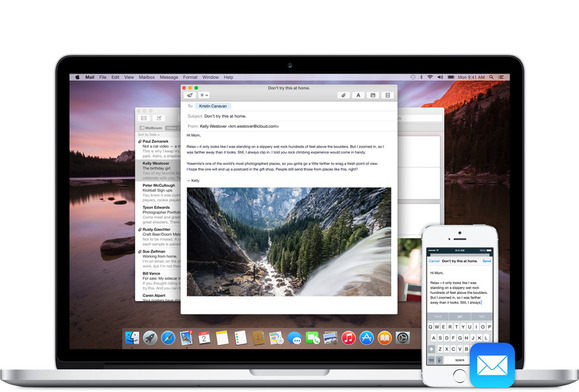New features in iOS 8 could steal Android's thunder
 Apple has taken more than a page from Android’s open book, leveraging iOS 8’s flexibility and opening the platform, at least to some degree.
Apple has taken more than a page from Android’s open book, leveraging iOS 8’s flexibility and opening the platform, at least to some degree.
The biggest drawback, as well as greatest strength of iOS, has been a close platform; a very sterile, sanitized and safe environment, where users could feel safe from the quirky tampering of wild-haired developers bent on total platform customization.
This changed on Monday, as iOS 8 was introduced, along with what seems to be a glimpse into a future where the iPhone could appeal to hardcore Android users too.
Among the most anticipated updates, iPhone users will have the option of replacing the default keyboard with Swype or SwiftKey, among other third party alternatives. The upcoming third party apps in store for iOS users, will have access to TouchID technology available to the iPhone 5S.
iOS 8 developers will also be able to take advantage of larger screens in future iphone devices, one of the main features keeping Android users from switching to iOS.
While it is unlikely that Android will lose a considerable amount of users to iOS, it is clear that Apple has taken giant steps towards appealing to tougher crowds.
The key is “Continuity”
The biggest blow into Android’s market domination by iOS, is expected to be “Continuity”, an ingenious app that lets iOS users work and share documents seamlessly between iOS and MacOS. Even more amazing is the feature that allows iOS users to “patch through” iPhone calls to a Mac.
Thanks to Continuity, iPhone and iPad users will have even more reasons to stay within a more flexible and productive Apple ecosystem where mobile devices are not just for leisure, web browsing and communication, but they are also integral part of an active work environment, just like Android has been.
With the introduction of HomeKit, the iOS/MacOS ecosystem becomes even more appealing, as it translates not only into a productive work platform, but into a comprehensive experience where wearable devices and health services work in concert with new home automation solutions.
Is Google’s domination coming to an end?
Apple’s new stance in exploring a more open ecosystem, as well as its new strides in home automation and wearable technology, presents more than a challenge for Google, suddenly faced with a powerful competitor stepping into its very own turf. It is unlikely for Google to lose its appeal, yet it is undeniable that Apple is determined to move forward with providing users with worthy alternatives.